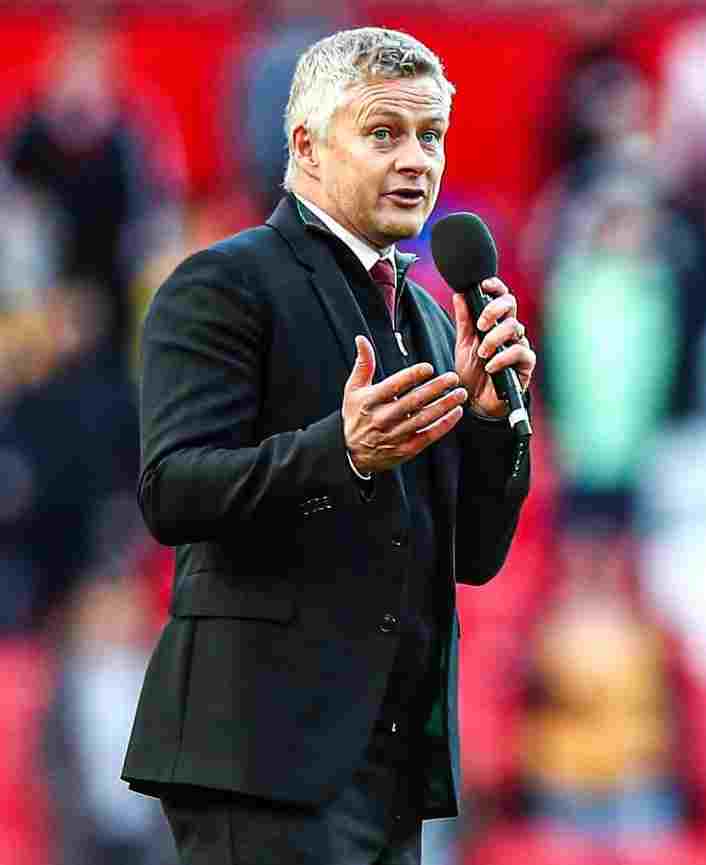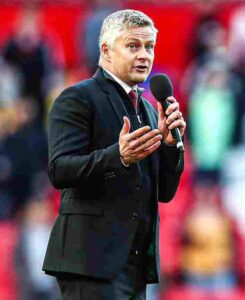Back in 2021, Ole Gunnar Solskjær Apologised to Man United Fans for Finishing 2nd
🗣️ “I know we are not where we want to be in the league. Our ambition is a lot more than second place. You can’t say that is an achievement.”
In a world where most football managers might have celebrated a second-place finish in the Premier League as a step forward, Ole Gunnar Solskjær did something that caught many by surprise. He apologised.
Not to his players. Not to the media. But to the fans.
—
The Quote That Defined a Moment
The 2020–21 season saw Manchester United finish second, behind a dominant Manchester City side led by Pep Guardiola. For many clubs, runners-up in the most competitive league in the world would be a major success.
But not for Manchester United.
> “I know we are not where we want to be in the league. Our ambition is a lot more than second place. You can’t say that is an achievement.”
Those words by Ole Gunnar Solskjær didn’t come from bitterness, nor from denial. They came from a place of deep understanding of what Manchester United stands for — and what it demands.
—
The DNA of Manchester United: Built on Glory
Solskjær wasn’t just any manager. He was a club legend, a man who had experienced the highest of highs under Sir Alex Ferguson — including scoring the unforgettable winning goal in the 1999 Champions League final.
He had lived and breathed the winning mentality that defines Old Trafford. For Solskjær, finishing second — no matter how improved the team had become — simply wasn’t enough.
It was a message to fans that he understood their frustration. That he shared it. That he hadn’t come back to Old Trafford to be remembered as “the manager who got second.” He had returned with dreams of titles, trophies, and glory — and anything short of that was a disappointment.
—
From Sixth to Second: The Progress That Wasn’t Enough
To be fair, Manchester United had improved under Ole. When he took over, the club was languishing in 6th place, fractured in identity, and low in morale following the José Mourinho era.
By 2021, United had:
Finished 2nd in the Premier League.
Reached the Europa League Final (only to lose to Villarreal on penalties).
Begun to see stars like Bruno Fernandes, Marcus Rashford, and Mason Greenwood flourish.
Rebuilt some semblance of “attacking football” that fans had long craved post-Ferguson.
But even so, progress isn’t trophies. And at a club like Manchester United, trophies are the only currency.
Solskjær understood that.
—
Why Second Wasn’t Enough: Perspective from Fans and Legends
Manchester United fans are not naïve. They understand that rebuilding takes time. But the reason Ole’s apology resonated so strongly was because he echoed what many of them felt but rarely heard from the board or previous managers:
> We’re not here to be second best.
Former United players, including Roy Keane and Gary Neville, both heavily involved in punditry, backed the sentiment. Keane, as always, put it bluntly:
> “Second is nothing. United should be winning leagues, not clapping for silver medals.”
And for a fanbase that grew up watching 13 Premier League titles under Sir Alex, finishing behind their noisy neighbours — even in a year of progress — was still a bitter pill to swallow.
—
The Weight of the Badge
Solskjær’s apology also reflected the emotional weight of the job. As a former player, he wasn’t speaking as an outsider. He wasn’t delivering PR lines crafted by a media team. He was speaking from the heart — from someone who knew what the badge meant.
In those few words, he validated years of fan frustration. He reminded the world that Manchester United don’t settle. That finishing above Chelsea, Liverpool, Arsenal or Tottenham might feel like progress to some clubs — but not here.
—
Could That Team Have Gone Further?
Looking back, there’s a valid debate over whether the 2020–21 United side could have pushed harder for the title. They had strong away form, a relatively healthy squad, and one of the most creative players in the league in Bruno Fernandes.
However, there were limitations too:
A lack of squad depth, particularly in defense and midfield.
Inconsistent home form, which cost them crucial points.
Goalkeeping uncertainty, with David de Gea and Dean Henderson alternating.
And most importantly, no killer instinct when it mattered most — seen in their Europa League final loss.
The team lacked that extra spark — a world-class defensive midfielder, a consistent goalscorer outside of Fernandes, and the winning edge that comes from knowing how to close out a title race.
—
A Turning Point That Never Was
Many fans saw 2021 as a turning point. The club had finished 2nd, the groundwork was laid, and the following summer, Cristiano Ronaldo, Raphaël Varane, and Jadon Sancho arrived to much fanfare.
But instead of pushing forward, the team regressed.
Solskjær was sacked just a few months into the 2021–22 season following a string of poor results. His dream of taking United back to the top ended not with a trophy, but with a painful farewell.
That’s perhaps what makes his 2021 apology even more poignant — because he truly believed they were close, and that 2nd place was merely a stepping stone, not a final destination.
—
Legacy of the Apology
Today, in hindsight, Solskjær’s words serve as a symbolic moment in Manchester United’s post-Ferguson journey.
They highlight:
The weight of expectation at the club.
The importance of standards and ambition, even in the absence of trophies.
And the brutal reality of football management — that sometimes, even progress isn’t enough.
Solskjær may not have brought silverware back to Old Trafford, but he reminded the club — and the fans — of what they stand for. He brought back a sense of identity, of belief, and most of all, accountability.
—
Final Thoughts
When Ole Gunnar Solskjær apologised for finishing second in 2021, it was more than just a manager owning up to unmet expectations. It was a declaration. A message to the world that Manchester United do not measure success in “almosts” or “better than last season.”
They measure success in titles. In glory. In first place.
That apology wasn’t weakness — it was strength. It was leadership. And it was a moment that will be remembered not for the trophy that wasn’t lifted, but for the standards that were upheld.












Leave a Reply